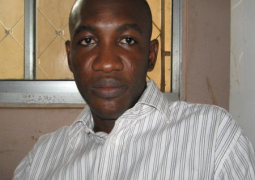This important occasion is held annually to generate more awareness about the Sickle Cell Disease (SCD), its impacts on human life and the possible ways of preventing or managing it in the life cycle of a victim.
World Sickle Cell Day (World Sickle Cell Awareness Day) is an annual global public health campaign held on June 19. It focuses on raising awareness of sickle-cell disease, also known as sickle-cell anemia, which is the most frequent genetic disorder worldwide, according to Anydayguide.com.
It stated that, “Sickle-cell disease (SCD) is a hereditary blood disorder, characterized by an abnormality in the oxygen-carrying hemoglobin molecule in red blood cells. Affected cells assume an abnormal sickle-like shape, hence the name of the disease.
“SCD may lead to a number of complications, some of which may cause death. The most common health problems associated with SCD are sickle-cell crisis (an acute condition characterized with severe pain attacks), severe infections and stroke. These complications can be prevented, but only if a person with SCD has access to adequate health care facilities.
“Almost 300,000 children are born with SCD and over 100,000 people die due to it each year. The highest frequency of the disorder is found in tropical regions, particularly sub-Saharan Africa, the Middle East, and the West Indies.”
On the occasion of World Sickle Cell Day, health organizations throughout the world organize events and activities aimed at raising awareness of sickle-cell anemia and the importance of its research.
It is this vein the Sickle Cell Association of The Gambia is observing the events to create more awareness about the disease in The Gambia.
It is, therefore, important to note, as stated by the WHO, that the day is celebrated to increase effective awareness of sickle cell anemia as a major health issue worldwide; that people living in each and every community all around the world get aware about the disease, and that all the myths and stigmas about sickle cell disease are removed, as health measures are put in place to overcome this disease.
Source: Anydayguide.com
“Having a chronic illness is hard."
Anonymous




